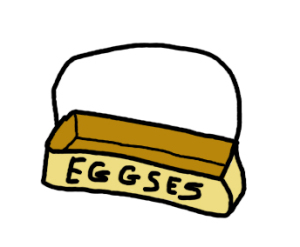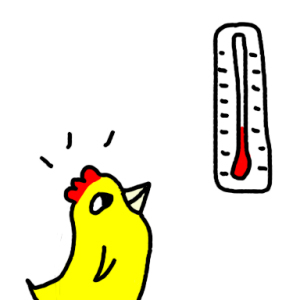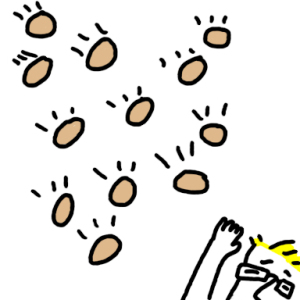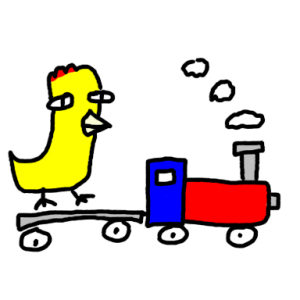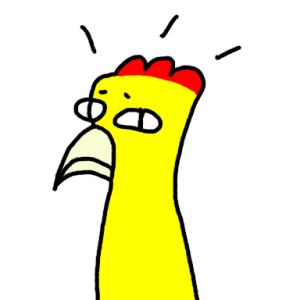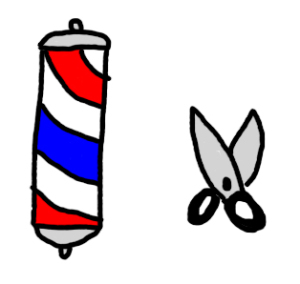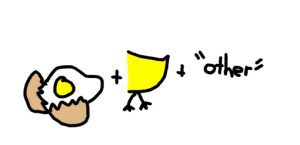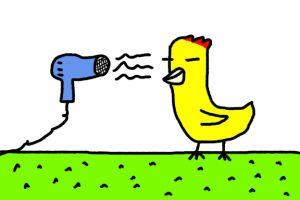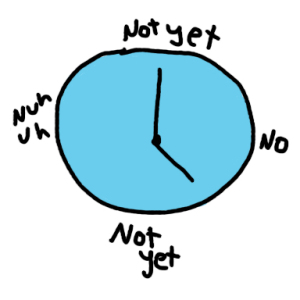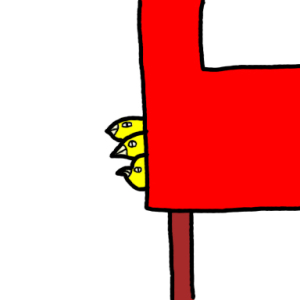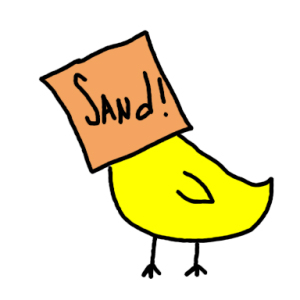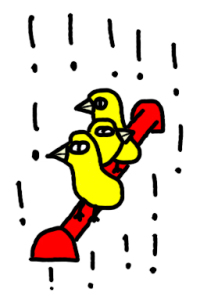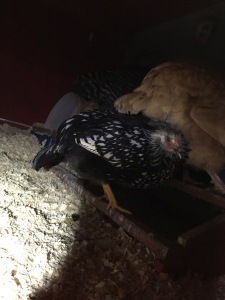It’s Molting Time Again!
Friday, October 31st, 2014Fall is a time for change. The leaves on the trees are the obvious example of this, commemorated by horrible traffic as people from out of town drive really slow, while oohing and aahing. Our gardens whither and die, leaving us to rely on frozen vegetables as side dishes. And in chicken coops across the country, chickens begin to explode on their roosts, leaving nothing but piles of disembodied feathers behind.
What?
Well, o.k., they don’t really explode, but it certainly looks like it. If you’ve ever seen a chicken, you’ve probably noticed that they are covered in feathers. Now imagine those feathers without the chicken attached to them. This is kind of what molting is. The chickens ditch their old feathers and grow new ones in order to be ready for winter. Think of it as buying a new down jacket each season. Maybe wasteful for humans, but chickens make their own, so they don’t have to worry about blowing all their money. Must be nice.
Molting this year is coming as part of a perfect storm for me. It’s triggered by the days getting shorter, which also affects how many eggs the chickens lay. When chickens are molting, they tend to not lay eggs either. And my chickens are nearing henopause, so our egg supply is really running low, until the new chicks start laying.
I’ve always thought it was a little crazy that they lose their feathers right when it starts to get colder, but I suppose the point is that they stick it out for a little while when it’s sort of cold, but are ready when winter hits. Being exposed to the chilly fall nights probably makes them tougher.
Every year when my chickens start to molt, there are obviously feathers everywhere. I get most of them out of the coop when I do my weekly poop cleanouts and chuck them in the compost, but the run has too many hard-to-reach corners, and those ones end up just getting mashed into the dirt where they become one with nature. Or more than one with nature, since they’re already a natural thing. They get buried. That’s what I’m trying to say. They get buried. But there’s a part of me that feels like this is wasting an opportunity. I built my coop out of reclaimed materials, so I’m totally on the re-use tip. I find myself starting to wonder if there’s anything I can do with all these feathers. I just hate to have so much of something and not put it to good use. But what would I honestly do with them? Make a comforter? Some pillows? Re-stuff a sagging down coat? Make a boa? Just have an enormous pile of chicken feathers in the middle of the living room? The possibilities seem endless. The possibilities also seem stupid. Maybe there’s a legitimately good use for them, but I don’t know. This might be where I find the limitations of my DIY recycling attitude. Some stuff just doesn’t need to be reused. Since feathers decompose, I suppose that’s fine. It’s not like the chickens are shedding rubber feathers that take 100 years to break down. We get a ton of leaves in the yard every fall too, and I don’t do all that much with those (though they do make good compost). I need to pick my battles, and maybe it’s time to concede to the feathers.
(CREDITS: Theme music: Chicken In The Barnyard by Fireproof Babies, Music Bed: Frogs Legs by Columbia Saxaphone Sextette)


